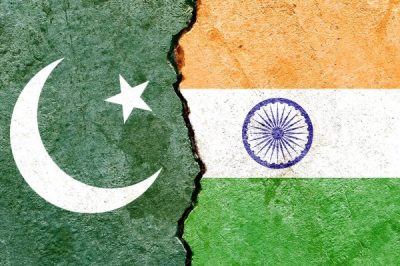In the intricate web of international relations, the dynamics between India and Pakistan have been marked by a blend of historical animosity, sporadic attempts at peace, and enduring security challenges. Prime Minister Narendra Modi’s recent comments on Pakistan, while appearing unsurprising on the surface, reflect a nuanced and strategic approach that considers both security concerns and the economic instability plaguing Pakistan.
The foundation for Modi’s cautious stance towards Pakistan was laid in the aftermath of the Uri and Pathankot attacks, which occurred shortly after his unexpected visit to Lahore in 2015. This visit, seen by some as a potential breakthrough akin to Nixon’s historic trip to China, was intended to thaw the icy relations between the two neighbors. However, the subsequent attacks underscored the persistent threat posed by cross-border terrorism.
Since then, Modi has adopted a firm and unwavering posture towards Pakistan, showing little inclination towards dialogue or engagement. This approach is multifaceted and rooted in various considerations. Firstly, there is a paramount concern for India’s security, particularly in light of Pakistan’s history of supporting militant groups. The Uri and Pathankot attacks served as stark reminders of the risks associated with any attempts at reconciliation.
Secondly, Modi’s approach has an ideological underpinning. His government’s nationalist ideology prioritizes a robust and resolute response to threats against India’s security and territorial integrity. Taking a tough stance on Pakistan resonates with this ideology, appealing to a domestic audience that values strength and decisiveness in leadership.
Thirdly, there is the economic dimension. While there have been calls, primarily from Pakistan, for resuming trade and economic cooperation, India’s economic benefits are perceived to be limited. Pakistan’s economic instability and its own internal challenges pose significant hurdles to meaningful economic engagement. Moreover, any economic opening with Pakistan is viewed through the lens of security, given the potential for misuse of economic ties by anti-India elements.
Also Read: A Unipolar World Order under American Hegemony
However, amidst this cautious approach, India is also mindful of the need to prevent relations with Pakistan from deteriorating further. India’s primary external concern is China, not Pakistan. Stable relations with Pakistan allow India to focus more attention and resources on the strategic challenges posed by China, particularly along the Line of Actual Control (LAC).
The ceasefire agreement along the Line of Control (LoC) in 2021 exemplifies this strategic balancing act. The agreement aimed to reduce tensions along the LoC, enabling both countries to direct more resources and attention toward their strategic priorities.
Despite the often-heated rhetoric from Indian politicians and media, which sometimes includes threats against Pakistan, much of this is seen as a means of signaling resolve rather than a precursor to military action. The underlying strategic calculation is to manage relations with Pakistan to minimize distractions from more pressing challenges, including those posed by China.
In a nutshell, Modi’s recent comments on Pakistan reflect a strategic balancing act that takes into account India’s security imperatives, ideological considerations, and economic instability in Pakistan. While India may not actively seek to improve ties with Pakistan, it is also wary of allowing relations to deteriorate to the point where they become a significant impediment to addressing more pressing challenges. As India navigates the complexities of its relationship with Pakistan, this strategic calculus will continue to play a pivotal role in shaping its approach.
***Author Behroz Dashti is a Political Analyst from Lahore








